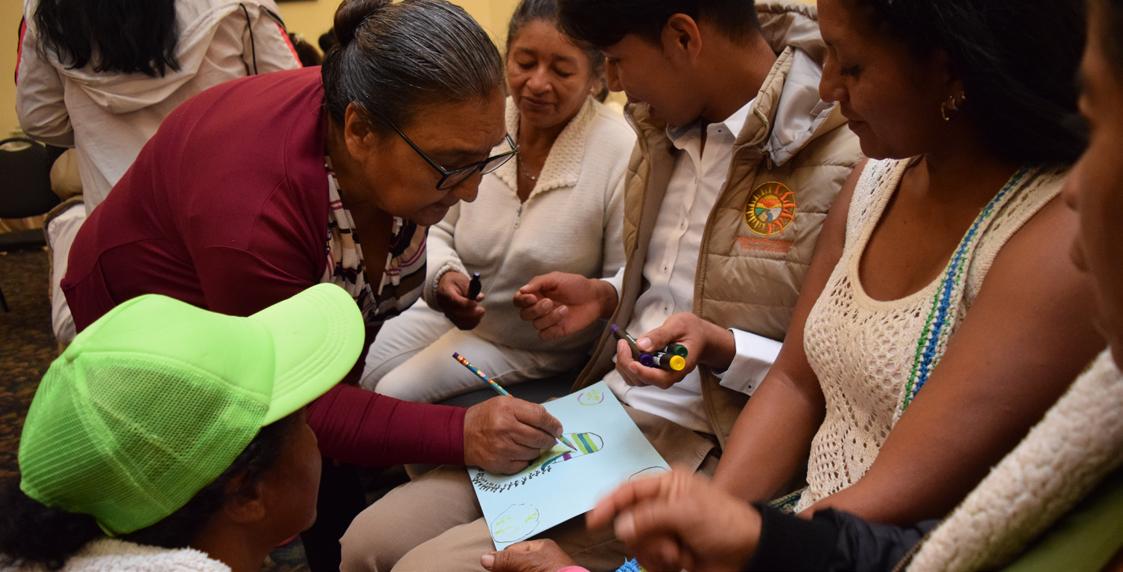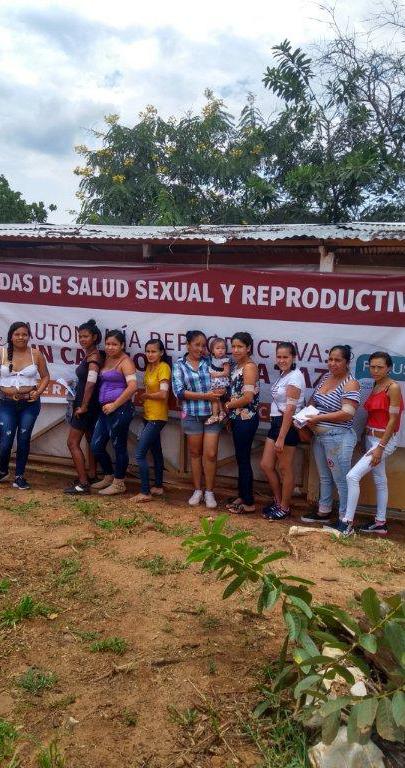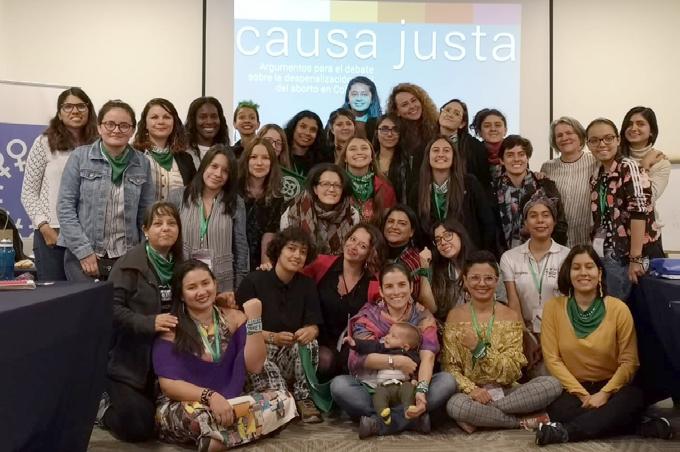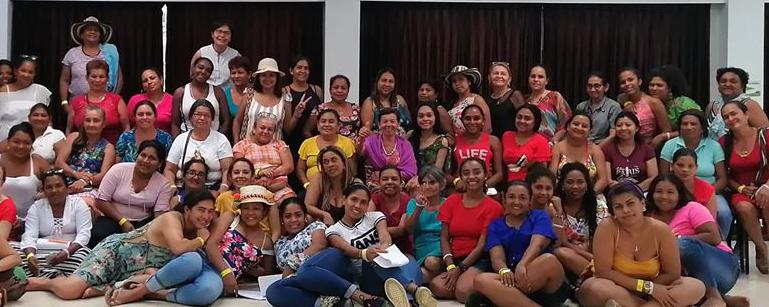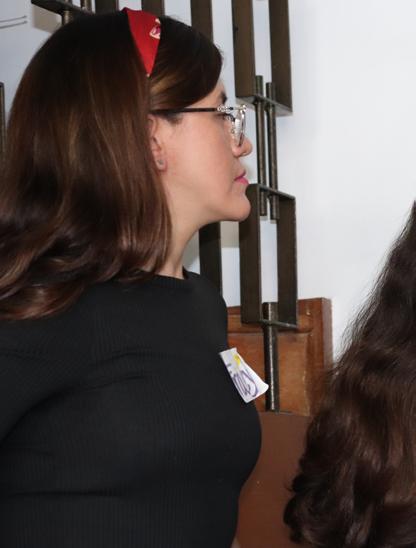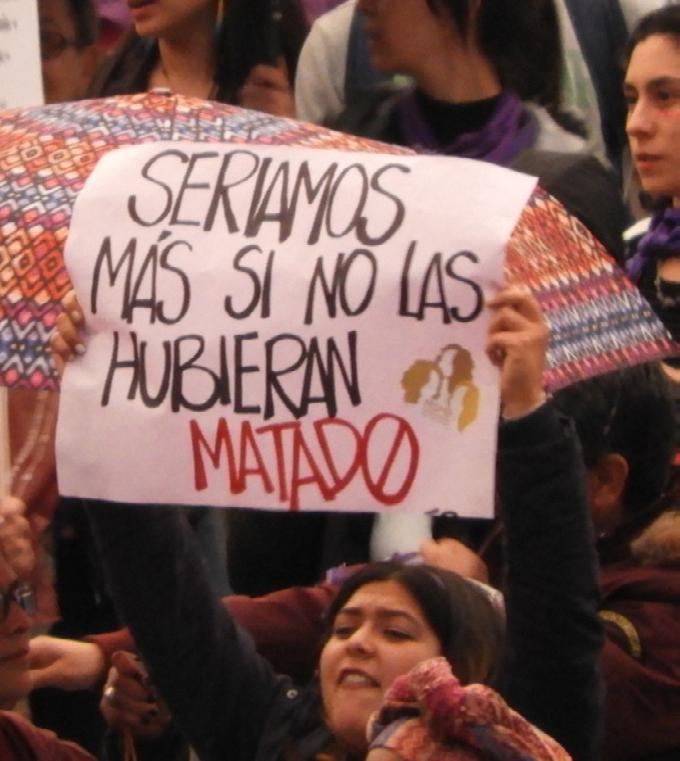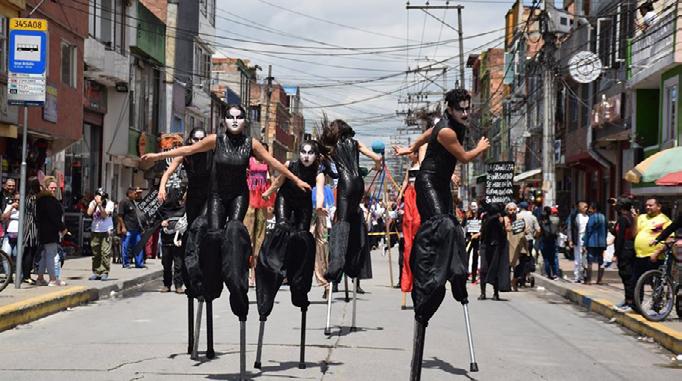
4 minute read
Patuna” women in heart and soul
“PATUNA” 1 WOMEN IN HEART AND SOUL + MUJERES JÓVENES = + PAZ
“May young people take the reins to build a new country, a homeland the size of our dreams.” —Mayra Moreno.
TEXT: YULY ROMERO GARZÓN, Fondo Lunaria Communications Professional
he afternoon comes to an end and at the bus terminal in Neiva, Mayra Moreno boards a small truck, the only possible means of transportation to the rural area called Los Andes in the municipality of San Vicente del Caguán, part of the El Pato-Balsillas Farmer T
Reserve. She is tired and anxious. Mayra has accepted the challenge of representing the CoMPaz youth network at the Annual Farmers’ Festival. This festival is also a setting to share the advances reached in their work with youth and women, where they help them develop their own voices in the defense of freedom of speech and the construction of communities with gender equality and social justice.
Along the way, following a bumpy earthen road that leads to Los Andes, the green Farmer Reserve emerges, little by little. Women, men, boys and girls recognize Mayra and her work as a part of the CoMPaz youth network to strengthen youth leadership. They especially recognize the voices, work, and agenda of the young female farmers of El Pato that allow for the construction of peaceful territories, the reconstruction of the communities, and the defense of their region. As political actors with rights, they share the same motivation; to generate dialogue, resilience, and sorority so they can live in harmony.
Mayra first arrives in Los Andes after nightfall because of landslides that delayed them along the way. She tells us that during the festival they will present a play titled “Women and Peace,” made with the participation of young people from Balsillas, and a compilation of stories and letters written by patuna women with their bodies, souls, and hearts, titled “Clandestine Duels.” These two pieces seek to make young female farmers’ participation in peacebuilding more visible through art and culture. The presentations also seek to present
and explain the region’s historic memory and its ongoing struggle for the implementation of the peace agreement.

Dawn in the farmer reserve is full of sounds. As is usual in Los Andes, one can already hear people moving about who need to wake up early to get ready for work. The community has been preparing for the opening of the traditional farmers’ festival for days. The festival is also a way to collect funds to improve education in the area and local infrastructure. At the Los Andes school, various community members are gathered to organize the logistics of this annual event that involves eight local zones of the farmer reserve. The activities prepared for the festival are a mix of art, music, sports, and work, all aimed at constructing a space to recognize the struggle, peace, and resistance of the farmers. The elders that are preparing for the festival take the opportunity to chat. Their conversations are a mixture of nostalgia and relief that they have lived to see a transformation, leaving behind years of violence. They remember sons, daughters, brothers, sisters, fathers, mothers, and other family members who were lost to the armed conflict. Every now and then an uncomfortable silence takes over and it is barely comprehensible that this place, a valley connected to the eastern Andes mountain range, home to kind and welcoming people, that has had very little State presence, has lived through countless armed confrontations, bombings, displacement, enforced disappearances, and arbitrary arrests. It is precisely in the context of this reality that the CoMPaz youth network thinks that all the organizations and social movements should prioritize work on the proposals to materialize peace for the communities of farmers, indigenous peoples, women, environmentalists, and youth. The idea is that these communities should become the protagonists in the construction of territorial power so that all who have suffered from a lack of well-being and have lived through the horrors of war, can be the source of actions that will make it possible to overcome over 50 years of armed conflict. However, no silence is capable of threatening the joy that is felt when the community opens the Farmers’ Festival that same afternoon. Now everything is ready; the tents are all set up, the lunch is ready, and the music is turned up to its fullest May the farmer, indigenous, women’s, environmentalist, and youth communities who have lived through the war be the ones to determine the actions taken for peace.
VIDEO: interview with Mayra. https://youtu.be/ MWCL6K-PAYY
volume. The agenda of activities is read out loud and the groups of young people await their moment to perform dressed in traditional outfits from the region. Between every dance Mayra and some of the other young women participating in the CoMPaz youth network’s social initiatives read some of the narratives and letters from “Clandestine Duels.” The patuna women have poured their pain, joy, fears, and hopes into these narratives along with what it has meant for them to build a community that holds on to and remembers its past so that they can teach the children about the importance of belonging to this region and leaving behind the violence.
The afternoon comes to an end. The festival is still not over. It will continue until Monday, a bank holiday. However, as she is getting ready to return to Neiva, Mayra shares some of the youth network’s motivations to continue supporting social initiatives that allow them to “propose spaces for participation, discussion, and celebration in order to plan post-conflict scenarios where new territorial relationships can be woven out of a mentality based on a culture of peace, so that the young people can take the reins to build a new country, a homeland the size of our dreams.” FM

